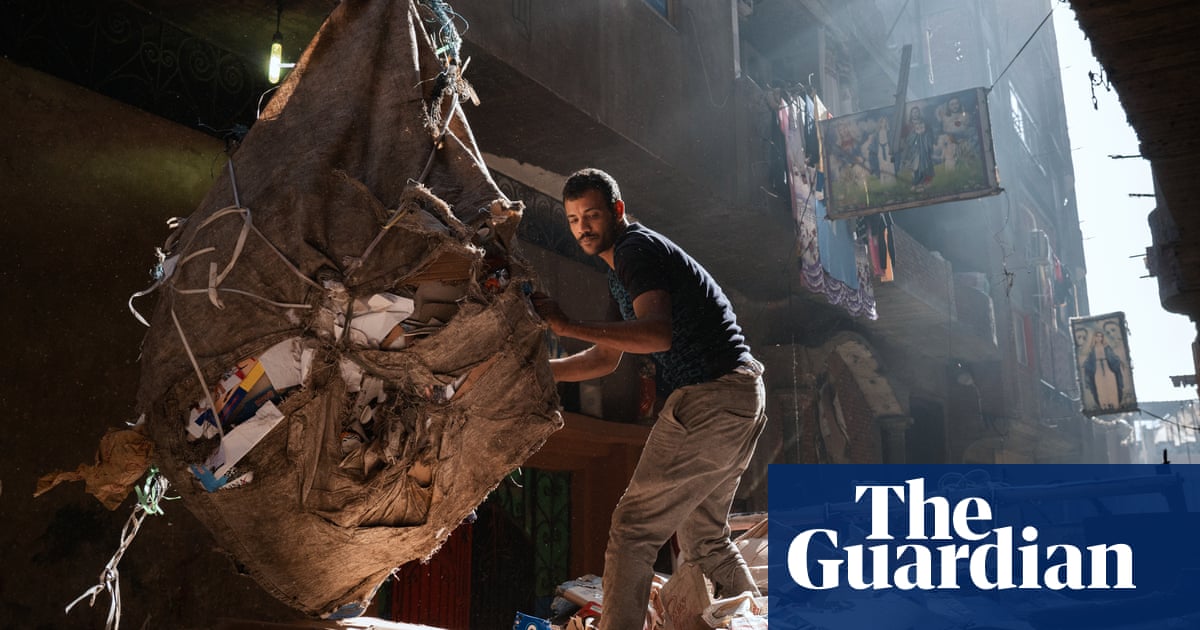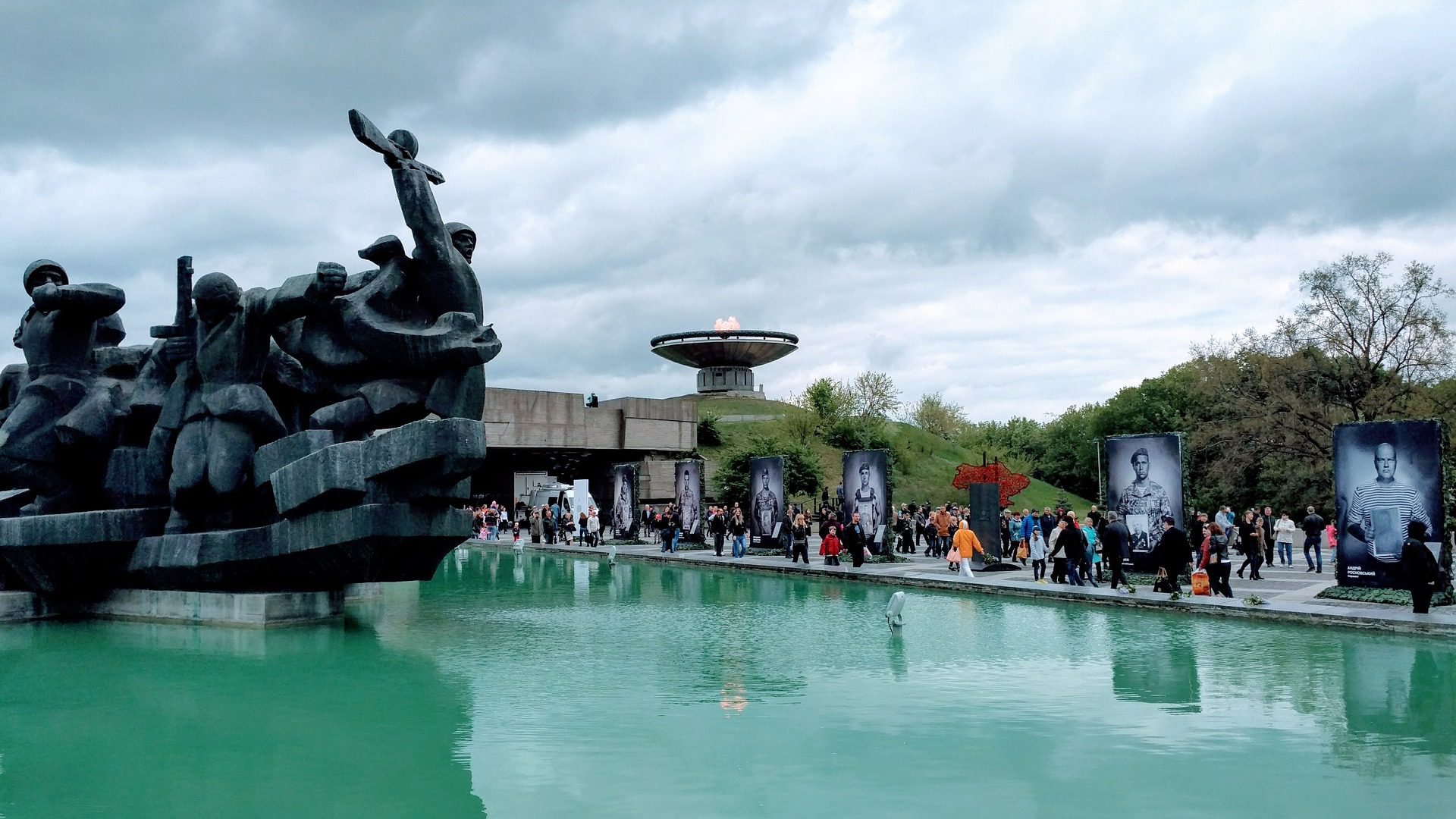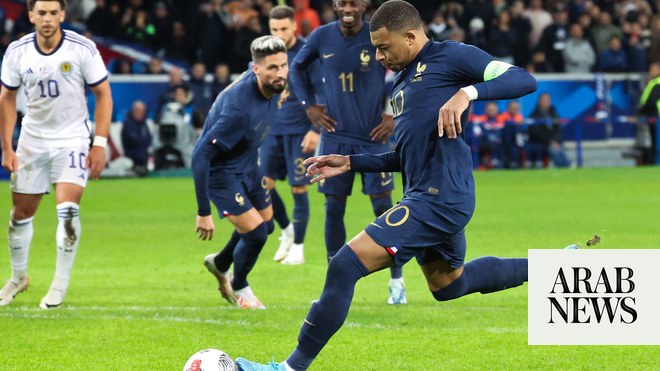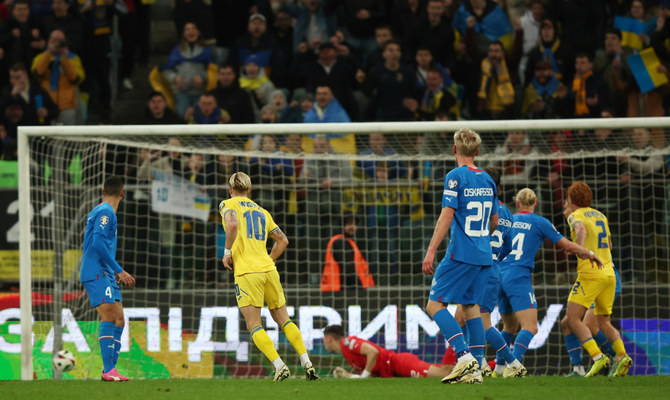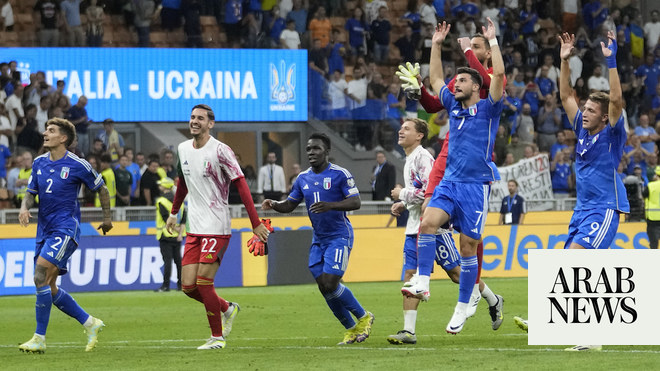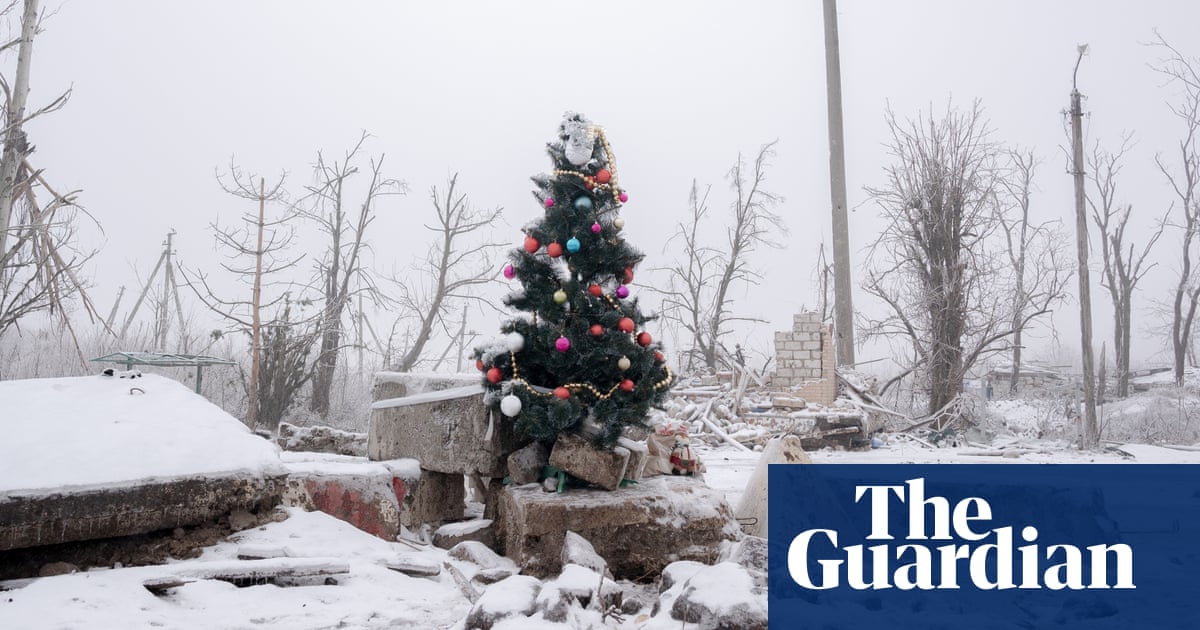
This is not a story about how a football tournament is taking hold of a country’s imagination for one glorious, fleeting summer against a dark backdrop of war. It is not a tale of how Ukraine’s participation at Euro 24 is providing people with “some light relief from the harsh realities of war”, as the cliche goes. It is not My Summer with Des, Ukrainian-style.
For it is impossible to escape from the horrors of war in Ukraine, to find relief in the football, because the war is in the very experience of following the football here: it’s in the walk to the game past anti-tank defences, sandbags, covered monuments, and boarded-up churches; it’s in the pre-match motivational messages from frontline fighters to the footballers; it’s in the air-raid warnings of rocket attacks flashing across the TV screen as you watch the game in the pub; it’s in the power cuts before kick-off. Euro 24 is not a convenient distraction from war in Ukraine, but yet another way to live it.
The war is not a backdrop to anything. It is front and centre, while the football is peripheral. And yet, Euro 24 is still visible. It is present on city streets and on beaches, in parks and bars and restaurants. And while there is no “Euros fever gripping the nation”, as we like to say in England, the football, although quiet and marginal and modest in comparison to the war, is subtly and unsurely starting to matter.
And yet, for the football to matter it needs to be watched and the war threatens this most crucial element of a summer tournament. Russia is launching a massive attack on the Ukrainian power grid, limiting the country’s energy resources. As a result, power is rationed by the government, with energy-saving power cuts made each day. Power, and potentially the football, is down for up to 10 hours a day.
In Germany during the Euros, thousands of screens at train stations and shopping centres are showing every goal from every game within three minutes of them going in, meaning you’ll never miss a thing. In Ukraine, screens are likely to cut out (along with every other electrical device) at any moment during any match, meaning you’ll miss an awful lot. The whirring, bouncy-castle hum of electricity generators then becomes the soundtrack to Euro 2024, as businesses, including bars and restaurants wanting to show the football, plug in for power.
The Euros in Ukraine is a light scattering of noticeable signs and images – beer ads, the odd football shirt, a window dressing – across a much thicker militaristic and war-themed landscape of visual messaging. The pervasiveness of official visual communication about the war is on a par with the UK government’s Covid-19 messaging during spring 2020, if that’s not too distant a memory. That’s a dense discourse to cut through. And yet, at times, the visual signifiers of the war and the football in Ukraine co-exist and combine with each other, intertwine and collide.
The morning of Ukraine’s final group match begins with explosions in the sky, as the city’s air defences come into operation. During Ukraine’s first game, 3-0 down to Romania with no hope of a comeback, when it seemed as bad as it could get, the signal cuts out, the screens freeze, and all that remains is the spinning wheel of death. Some said it was probably Russia’s doing, while others joked it would have been crueller to have left it on.
There is a sense from being in Ukraine during Euro 24 that the game matters to Ukrainians more during the war, with victory and defeat in football fed into larger narratives of national triumph and suffering, perseverance and unity. And yet, there is also a sense that it doesn’t matter one jot, that it is totally meaningless and insignificant, and that Bill Shankly’s famous phrase about football being more important than life and death is utter nonsense. War, it seems, in its blurring of reality, in its breakdown of solid, black and white interpretations, allows both things to be true at once.





